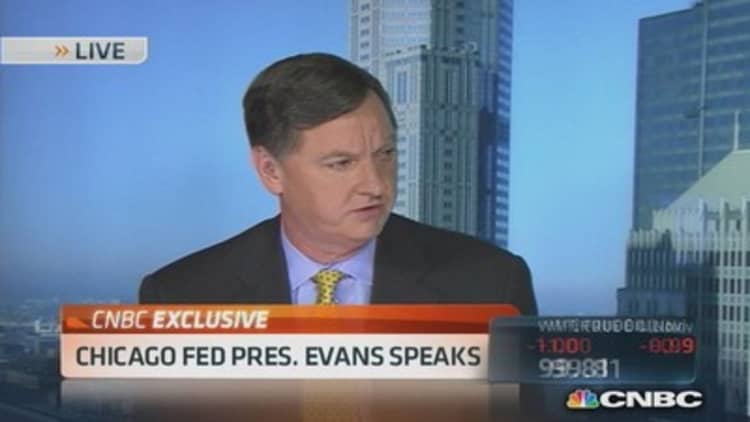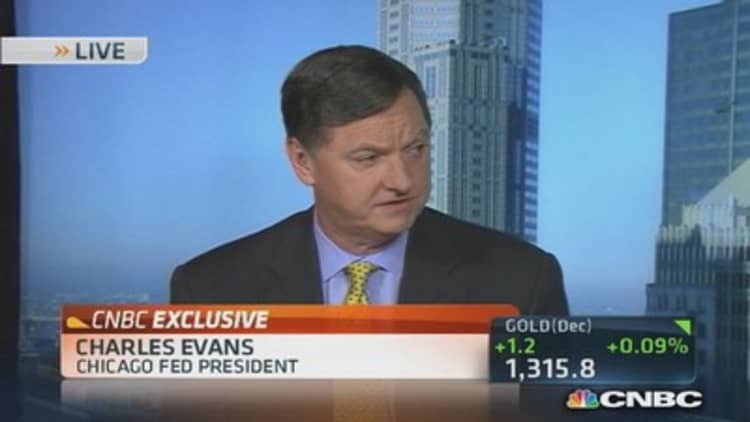
The Fed may not begin tapering for months because the government shutdown has left the economic picture unclear, Chicago Fed President Charles Evans told CNBC on Monday.
Federal Reserve policymakers are scheduled to hold their October meeting next week to consider when to scale back their $85 billion-a-month asset purchases known as quantitative easing.
Evans said in a "Squawk Box" interview, "October is a tough one. December? I think we need a couple of good labor reports and evidence of increasing growth, GDP growth. It's probably going to take a few months to sort that out." He explained he wanted to see "consistent" nonfarm payroll growth 200,000-plus jobs and a lower unemployment rate.
(Read more: Web extra! Fed's Evans on wages ...)
There has not been much data since the Fed's September meeting. when the central bank shocked Wall Street by not tapering because the government stopped publishing economic reports during the federal shutdown.

The delayed September employment report is scheduled for release on Tuesday.
As for the longer-term effects of QE, Evans addressed whether there's a limit to how large the Fed's balance sheet should get. "I really don't think about it that way," he said. "We could go on as long as necessary."
(Read more: Fed could up QE to $1 trillion a month: Marc Faber)
"Especially if we were in a period of falling inflation," he continued—saying he's not looking for that to happen. In fact, Evans said he believes "the economy is going to do better once a number of these headwinds step down."
"We have in place the guidance on short term interest rates that is capable of adding an awful lot of accommodation during those periods when things might be turning down," giving people confidence that we're "not going to step back prematurely."
"Our number one risk is that people think we are going to step back and somehow add restrictiveness to the economy at all the wrong times," he admitted, but assured would not happen.
He also said he's not concerned about QE creating an asset bubble.
On the issue of Fed Vice Chair Janet Yellen being appointed to succeed Ben Bernanke as chairman of the central bank, Evans said she'll be a great Fed chief.
—By CNBC's Matthew J. Belvedere. Follow him on Twitter @Matt_SquawkCNBC.



